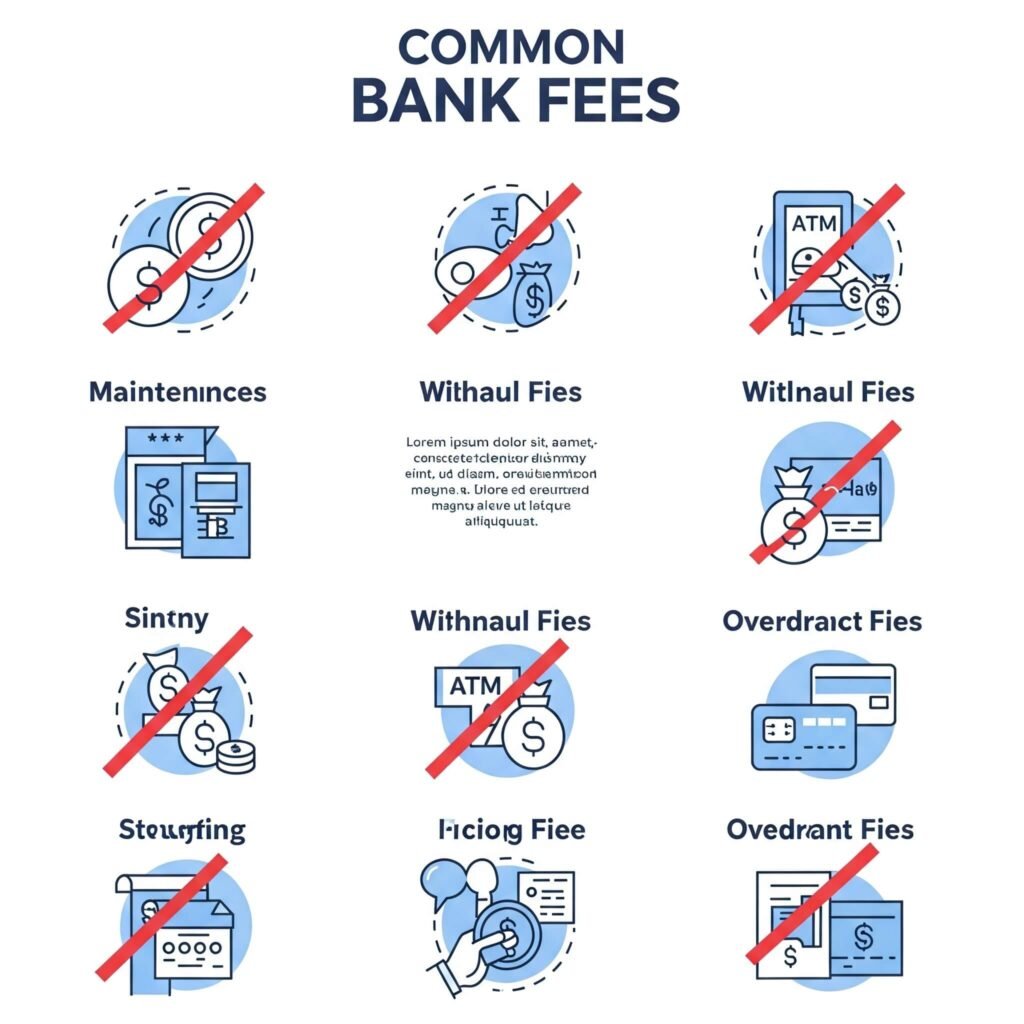Bank fees stung like Seattle rain last week. I was at a café, espresso and wet dog smells mixing. My phone pinged: $35 overdraft fee. Brutal. I thought my account was fine, but hidden charges creep in. In my tiny apartment, radiator hissing, I’m spilling my dumb stories about dodging bank fees. I’m no pro—I forgot my PIN once at a gas station, looking foolish. This is my raw, American take, trying to keep banks from stealing my cash. Banks feel like they’re out to get us sometimes, but I’ve dodged a few fees now.

Overdraft Bank Fees: College Mistakes Hurt
Overdraft bank fees haunt me from college. I ate ramen, steam fogging my glasses, room stinking of socks. My account tanked over a $9.99 app charge. I racked up $70 in fees once for a burger and gas. Ouch. I opted out of overdraft protection, so my card gets declined now. Text alerts ping me, and I keep a $50 buffer, though I dipped into it last week. Link a savings account for auto-transfers—it’s saved me. Check the Consumer Financial Protection Bureau for overdraft
Maintenance Bank Fees: My Lazy Days
Monthly maintenance bank fees are the worst. I’m on my couch, AC blasting against August heat. My bank nicks $12 if my balance dips. When jobless, my place reeked of takeout, and I ignored statements. Slob move. I switched to Ally—app glitched once—and hit direct deposit minimums to skip fees. My tips:
- Keep balance above minimum ($1,000 for me, tough sometimes).
- Go paperless to save fees and clutter.
- Find no-fee banks; credit unions are great.
I still forget to check my balance and get hit.aks through.

ATM Surcharges: Road Trip Fails
ATM surcharges hit when you’re desperate. On an Ohio road trip, fries and dust smells, I paid $4 at a shady ATM. Lost $10 that trip—worse than sunburn. I use Allpoint for free ATMs now, but I slipped up at the airport last week, paying $3 in a rush. For travel, get a no-foreign-fee card—Capital One’s okay, despite slow service. The FDIC explains ATM fees here: https://www.fdic.gov/resources/consumers/consumer-news/2021-08.html.

Wrapping Up: Save Your Cash
Bank fees are like fruit flies in my kitchen—annoying, always there. I’ve spilled my dumb mistakes and small wins, typing as sirens wail outside. I mess up, but I’m learning to keep my cash safe. Check statements, ditch fee-heavy banks, set alerts. What’s your worst bank fee story? Share below or check your account—don’t let fees win!



